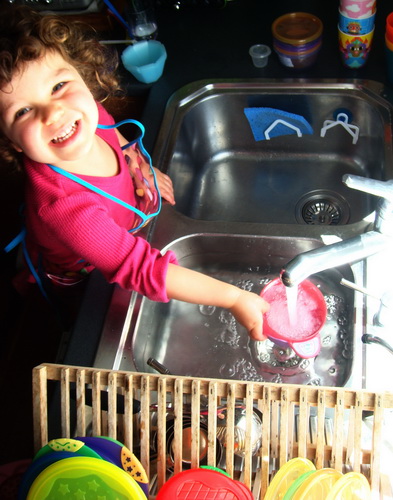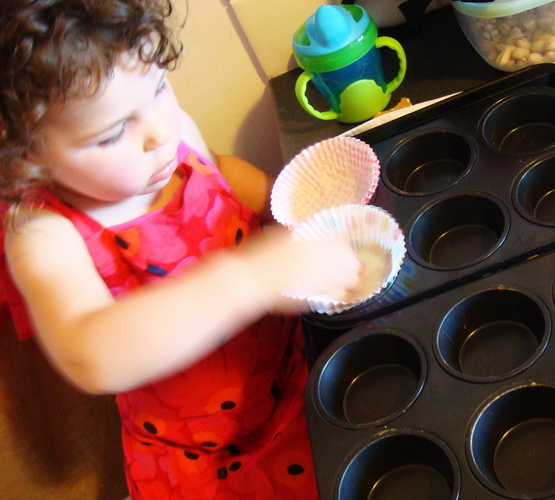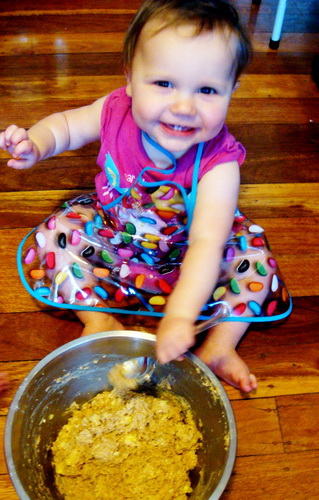It all begins in the sand pit as they play with a bucket and spade and get used to moving and scooping the sand – by two years old they will happily spend an hour at the kitchen sink with a mix of bowls, cups and spoons and a sink of water. This is a good place to start.
• Safety proof the cupboards
• Free the area around the sink of all clutter
• Fill sink up with water and place as many plastic bowls and utensils as you can find next to it all. They like to play with the dish racks too
• Find a wide, sturdy stool to prop them up
• I suggest gum boots and plastic aprons to protect them against water spillage
• Place tea towels on the floor to catch the water and minimize your clean up later, and importantly avoids slippery floors

Cooking - there is almost always a step in which they can be involved that allows them to feel they are a part of the cooking process and home rhythms. Look for the steps that involve: -
• Measuring of dry ingredients - where they can either scoop it out or pour it into a measuring cup already placed in a large bowl to catch spills – this also can allow you to quickly check the measurements before mixing it all in
• Once they are able to pour well from a bottle they can help with wet ingredients too
• Stirring a big bowl of dry ingredients like the first stage in a cake or muffin recipe is always a good job to give them as they really feel a part of the kitchen activities
• Allow them to press any buttons where possible – a weighing machine or the timer for example
• Sprinkling ingredients on a pizza or over pasta or adding dried herbs etc
• Rolling cookie dough, making the little balls and placing on the tray, adding patty pans etc
Just make sure to read the recipe first and with a little preparation it can be a fun, safe and brilliant learning curve for children of all ages - involving food, nutrition, math and team work – and with good forward planning not too messy!
Especially great for those rainy days when the children need entertaining, simply set up the kitchen and let them in.

